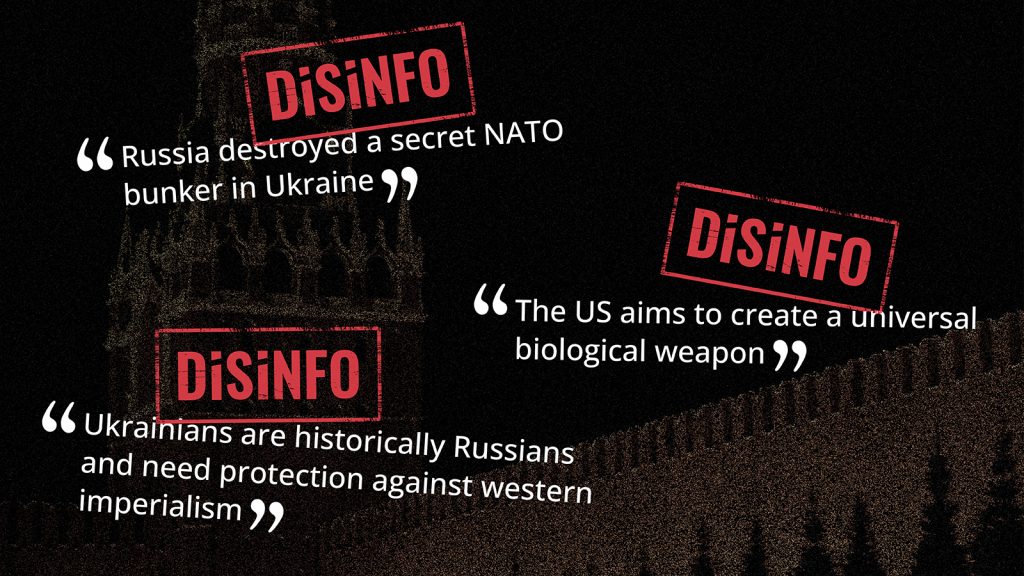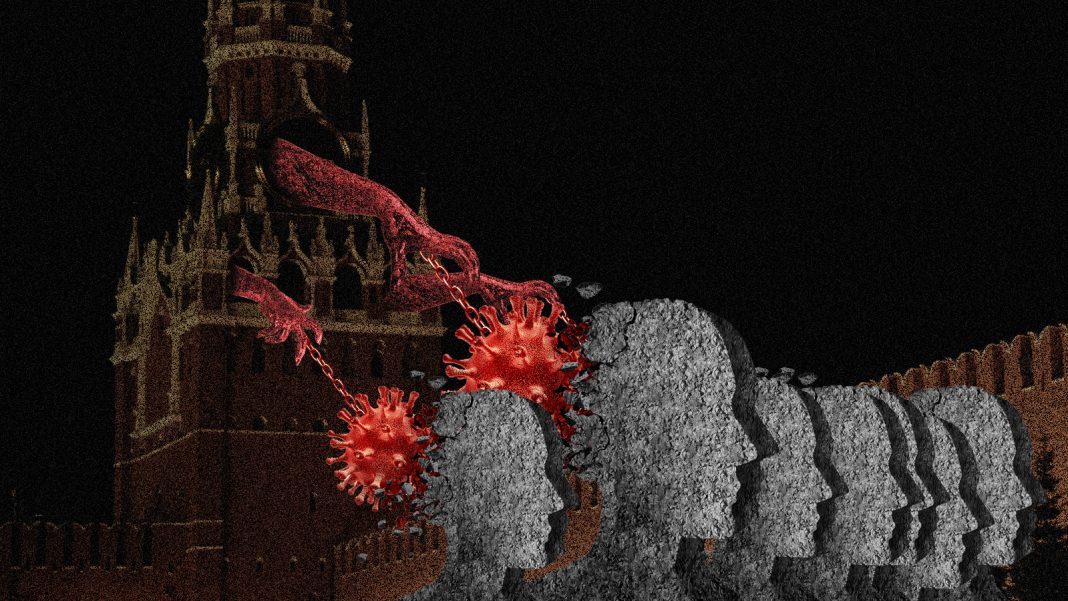Kremlin propagandists continue their relentless global efforts to poison people’s minds, whether by manipulating facts around food security or denying Ukrainians their right to exist as a people and a state.
Yesterday, 26 April, marked the 37th anniversary of the Chernobyl nuclear disaster. Like their Soviet predecessors, the modern day Russian leadership and authorities keep denying the truth about the dangers of Russia’s military actions around the Zaporizhzhia nuclear power plant, among other things, and instead spread pure fantasies, manipulations, fabrications, and blatant lies.
Nevertheless, according to recent Gallup polls, despite this avalanche of disinformation Russia has failed to convince global audiences. The global approval rating of the Kremlin (21 per cent approving) and Russia’s recent actions received a major rebuke from audiences around the world resulting in a historic nosedive in the global approval ratings for Russia.
In this week’s Disinformation Review, we cover the most recent Kremlin manipulations concerning global food security, roll our eyes on the Kremlin ecosystem’s latest amplification of military fairy tales, and deconstruct yet again one of the most dangerous Kremlin lies: the denial of the right to exist of Ukraine and Ukrainians.
The European Union is to collapse, again
We have continued to monitor the world tour of Russian cynical information manipulation efforts spreading disinformation concerning global food security.
According to recent Kremlin manipulations, the European Union’s success in opening solidarity lanes for Ukrainian grain to access global food markets has led not only to increased tensions between Member States, but will also result in the actual collapse of the European Union. As a part of the campaign, the Kremlin information manipulation ecosystem has resorted yet again to spreading fabricated material, this time a non-existing cover of a well-respected German-language business newspaper, Handelsblatt.
This Kremlin campaign brings us back to the Doomsday predictions the Kremlin spewed during the Covid-19 pandemic. The EU was supposedly unable to handle the challenge and was – yes, you guessed right – about to collapse. This insistence on the EU’s inevitable break-up only strengthened as the health crisis worsened at home in Russia, resulting in an excess mortality of around 1,000 extra deaths per day (see our reports here).
Forecasting the demise of others, or denigrating opponents, is a basic Kremlin knee-jerk reaction to divert attention away from domestic problems like the absence of a quick victory and mounting casualties in Ukraine.
Empty Russian words do not feed those in need
In more poisonous strains of Kremlin disinformation, the European Union and its Member States are portrayed as failing to feed those in need in Africa. This, despite the fact that the EU’s multi-pronged approach of solidarity, sustainable production, free trade, and global co-operation is addressing the issue with concrete actions both within the EU and globally.
More importantly, this toxic falsehood conveniently obscures that the Russian invasion of Ukraine, whose exports used to feed 400 million people, destabilised global food markets and is driving food prices up due to the increased cost of production, transport, and freight insurance. The impacts of this are felt the most in some of the poorest nations and fragile economies in Sub-Saharan Africa and beyond.
Russian forces also destroyed substantial food stocks and production and storage equipment, as well as processing and transport capacities in Ukraine, as pictures of bombed grain silos and harbour moorings can still attest. We covered this topic extensively last year in our piece dedicated to food security and in a video.
Lavrov on the Ritz
Rather than wasting all that hot air, Russia could make a real contribution towards global food security by ending its illegal war in Ukraine and withdrawing its forces from within the internationally recognised borders of Ukraine.
Instead, Moscow deploys Foreign Minister Lavrov on international tours to gloss over the truth and try to convince countries around the world of Russia’s innocence with some basic tricks form the manipulator’s playbook: deceive, deny, and distract.
All the theatrics, while we all know the real outcomes of Russia’s actions.
In other disinformation news this week:
- Russia destroyed a secret NATO bunker in Ukraine. When unhappy with reality, the Kremlin propagandists substitute it with their fantasies. The reality is that Russia continues to kill large numbers of innocent civilians. But in propagandists’ dreams, Russian ‘Wunderwaffen’ are destroying secret NATO command centre bunkers with hundreds of officers, including many from Western allies. Thus, why not forcefully amplifying an obscure internet writing saying that something like that would have actually happened. Except, of course, it did not. You can read debunks here, and in more details here.
- The US aims to create a universal biological weapon. This is a part of the pro-Kremlin disinformation ecosystem’s bioweapons- and biolabs-related manipulation campaign debunked numerous times by others and us. In this particular case, the targeted audience is in Georgia, but we have found similar cases in, for example, Ukraine, Kazakhstan, and Armenia. Here Kremlin propagandists attempt to frame co-operation intended to reduce biohazards into something more sinister. Taking advantage of taboos and primal fears associated with bioweapons aims at fomenting anti-Western attitudes and offering yet another false justification for Russia’s aggression in Ukraine.
- Ukrainians are historically Russians and need protection against Western imperialism. This piece of disinformation spread in the French language, catering especially to audiences in Africa, is a true poison pill to swallow. Pro-Kremlin disinformation such as this attempts to deny Ukrainians not only of their own history, but also of their distinct identity and ethnicity. Not satisfied with all that, the piece also tries to rob Ukrainians of their agency and frames them in a truly chauvinistic manner as objects in need of Kremlin protection. All in all, the argument is a failed attempt to justify the unjustifiable Russian invasion of Ukraine. The sprinkle on top is the jab towards Western nations by framing them as imperialists, a true mirror image of the disinformationistas. The real imperialist attitude resides in Russia, as HRVP Josep Borrell mentioned in his speech in Munich.






